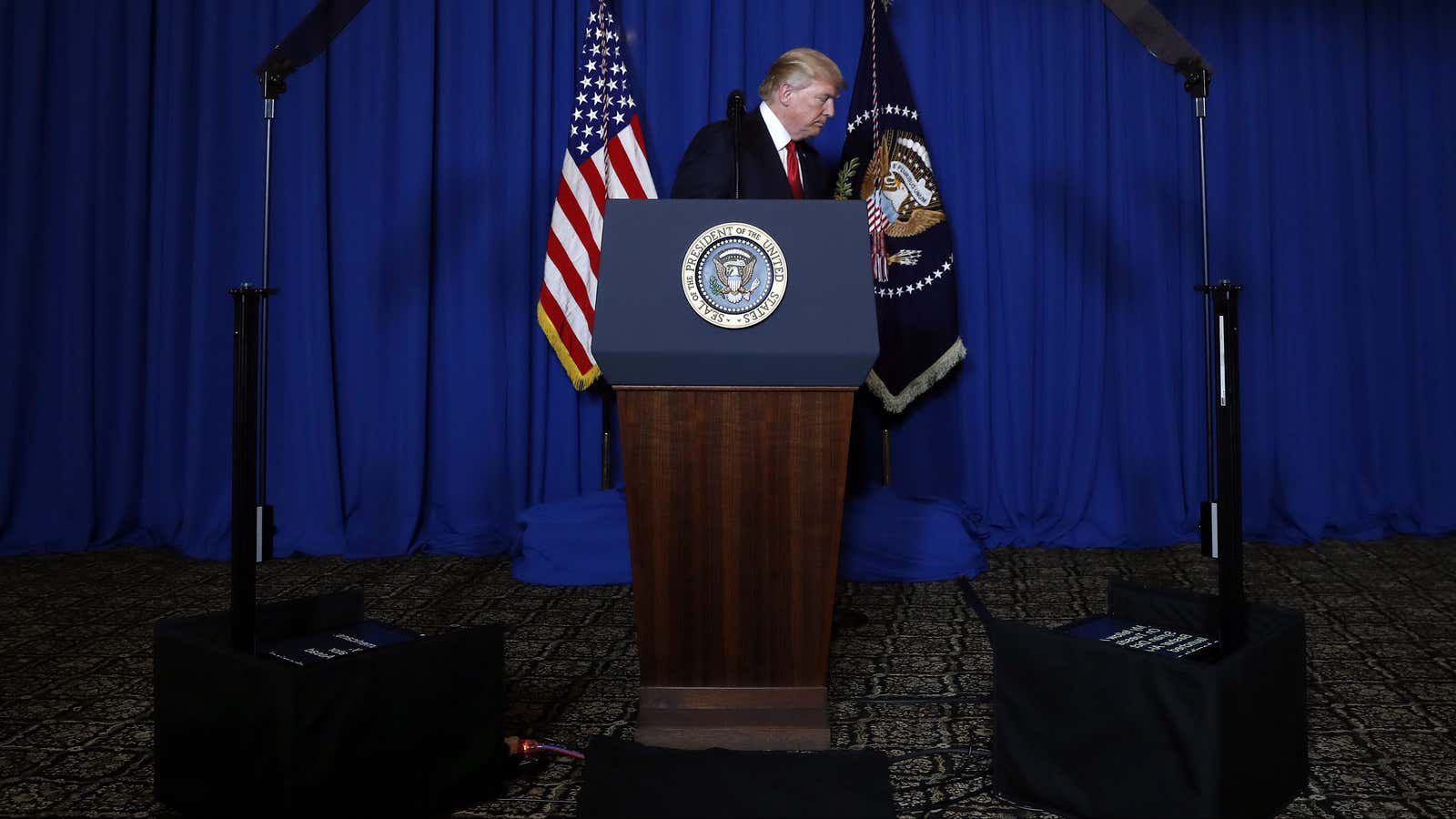The Trump administration has given out conflicting signals regarding its attitude toward Syrian president Bashar al Assad: it says its missile airstrike was a one-off response to Syria’s sarin attack, and that its policy accepting Assad as the country’s leader hasn’t changed. But it also called for an international coalition to remove Assad.
US secretary of state Rex Tillerson, speaking to reporters, said the administration fired the missiles to send Assad a message that he could not violate international norms that prohibit the use of chemical weapons.
“I would not in any way attempt to extrapolate that to a change in our policy or posture relative to our military activities in Syria today. There has been no change in that status,” Tillerson said. ”I think it does demonstrate that president Trump is willing to act when governments and actors cross the line and cross the line on violating commitments they’ve made and cross the line in the most heinous of ways.”
What is that policy? On March 31, White House spokesman Sean Spicer said, “With respect to Assad, there is a political reality that we have to accept.”
But after the April 4 sarin attack by Syria, but before the US retaliatory strike, Tillerson said the administration was devising a plan to remove Assad from power. “With the acts that he has taken, it would seem that there would be no role for him to govern the Syrian people,” Tillerson said.
Whatever Trump’s wishes, his hand may be forced by pragmatism—there in fact is very little chance that Assad is removable given his support by Russia and Iran; neither does there appear to be a leadership acceptable to the US and its allies prepared to step in should Assad go.
